TechnologyCounter provides genuine, unbiased real user reviews to help buyers make informed decisions. We may earn a referral fee when you purchase through our links, at no extra cost to you.
List of 15 Best College Management System
Showing 1 - 15 of 79 productsAcademics ERP is a distinct and all-inclusive software for effectively managing academic institutions, such as elementary and high schools, colleges, universities, technical institutes, and medical colleges. It caters to the specific needs of these...Read Dataman Academics Reviews
Entab Infotech Pvt Ltd, a renowned school management software provider, has been serving the education sector in India for the past 18 years. With a strong client base of over 1200 schools, we have emerged as the top choice for school ERP software...Read Entab Reviews
Managing an institute can be a tedious job as a lot of activities happen at the same time. In such case, Campus 365 is your solution as it gives you the edge over any other educational application by bringing all the verticals at one place...Read Campus 365 Reviews
CLOBAS is a solution for streamlined data management. This innovative software offers efficient and secure storage for all your important documents, without the need for complex and outdated systems. Say goodbye to scattered information and welcome a...Read CLOBAS Reviews
iCampusHUB is a software solution developed to streamline the administrative, academic, and financial management processes of schools and colleges. With its user-friendly interface and advanced features, iCampusHUB simplifies the overall management...Read iCampusHUB Reviews
Camu is the innovative solution for managing and streamlining all aspects of your business, from project management to customer support. This powerful software is designed to simplify processes, increase efficiency, and ultimately boost your bottom l...Read Camu Reviews
JILIT Campus Lynx is a software designed to streamline all your campus management processes. With its user-friendly interface features, it helps educational institutions achieve enhanced efficiency and organization. Say goodbye to manual tasks and em...Read JILIT Campus Lynx Reviews
Iolite School, the premier online learning platform for students of all ages. Our innovative approach to education combines engaging lessons, interactive activities, and personalized support to create a truly unique learning experience. Join us on a...Read Iolite School Reviews
CampSteer is a software for managing all your camp needs! Streamline your tasks, simplify your planning, and enhance your camp experience with this intuitive tool. Say goodbye to the hassle of juggling multiple systems and hello to CampSteer is a one...Read CampSteer Reviews
Ricoh-DMS is a top-of-the-line document management system designed to streamline processes and increase efficiency for businesses of all sizes. With its user-friendly interface features, Ricoh-DMS is a must-have tool for organizing, sharing, and acce...Read Ricoh-DMS Reviews
ScholarSYS, is a solution for managing your academic institutions administrative tasks. With our user-friendly interface tools, ScholarSYS streamlines all aspects of your institution from admissions to student records and everything in between. Say g...Read ScholarSYS Reviews
LSAcademia is a leading educational software designed to cater to the needs of modern classrooms. With its innovative features and user-friendly interface, it simplifies the learning experience for both teachers and students. From lesson planning to...Read LSAcademia Reviews
Attention all educators and students! Say goodbye to traditional school management systems and hello to HDSchool is a innovative, user-friendly solution to streamline your academic processes. Efficient, modern, and tailored to meet your specific need...Read HDSchool Reviews
Academia ERP is a platform that caters to the needs of educational institutions around the world. With its advanced features and user-friendly interface, Academia ERP streamlines and simplifies the management process, making it the perfect solution f...Read Academia ERP Reviews
mySkoolApp is a software that aims to simplify school management and communication. Developed with the latest technology, mySkoolApp offers a user-friendly platform for schools to manage their daily operations and for parents to stay updated on their...Read mySkoolApp Reviews
- What Is College Management System?
- Top Reasons Why Businesses Need College Management System?
- What Are the Top Key Features of College Management System?
- What Are the Top Benefits of College Management System?
- What Are the Steps to Choose the Right College Management System?
- What Are the Types of College Management System for Different Industries?
- What Are the Technology Trends for Best College Management System?
- What Are the Deployment Options for College Management System?
What Is College Management System?
A college management system is a piece of computer software that administrators use to oversee the operations of a college or institution. It assists managers in developing a comprehensive set of tools to improve efficiency and accuracy across all college processes, including student information and admissions, as well as fiscal and financial management.
It is capable of tracking student enrollment and producing thorough data for faculty, staff, and students. It also includes features for online conversation and cooperation, as well as customizable calendars and notifications.
A College Management System often includes a dashboard that displays all of the school's activities, as well as a collection of linked modules that allow users to conveniently access information and track student and teacher performance. At its core, it is a complete system for administering college administrative functions.
Top Reasons Why Businesses Need College Management System?
1. Improved Efficiency: College management systems assist educators in more efficiently managing workflow and data related to admission, registration, attendance, fees, grades, and other topics.
2. Automation: By automating manual operations such as report cards, progress inspections, and student access, educational data can be managed more effectively and precisely.
3. Secure Data Access and Storage: It secures educational data such as student information and records.
4. Streamlined Communication: College management software makes it easier for students, parents, teachers, and administrators to communicate with one another.
5. Improved Record Keeping: It provides for improved record keeping of student information, grades, attendance, and other factors.
6. Better Resource Management: Using automated processes, college management enables effective management of resources such as classrooms, student housing, libraries, laboratories, and teaching personnel.
7. Improved Data Analysis: College software makes it easier to analyze educational data to uncover prospective areas for improvement for improved results.
8. Enhances Safety Measures: The best college management systems also contribute to improved safety measures by issuing safety alerts and identifying dangers.
9. Personalised Student Experience: By understanding students' particular needs, college administration systems may give a personalized experience.
10. Intelligent Insights: The best college management software can also provide intelligent insights into student performance and assist with academic decision-making.
11. Scalability: Top college management systems are extremely scalable and can accommodate educational institutions of any size.
12. Cost/Time Savings: Because operations are efficient and automated, top college management systems can save both time and money.
13. Accessible From Anywhere: Because college administration systems are cloud-based, they may be accessed from anywhere, at any time.
14. Smoother Event Management: College management systems aid in the organization of events and foster a holistic perspective of college activity.
15. Better Decision Making: It helps administrators make better judgments by preparing data for analysis.
What Are the Top Key Features of College Management System?
1. Improved Student Information Management: With capabilities such as student demographics, attendance monitoring, and grade tracking, the best college management systems aid in improved student information management.
2. Faculty and Course Management: Faculty and course organizers can use college administration systems to assign classes, establish syllabuses, manage student assignments, and track class progress.
3. Inter-Departmental Communication: College management systems provide an interface via which departments or units within a college can communicate, share information, and collaborate on resources.
4. Automated Scheduling: Top college management systems can generate course schedules automatically and notify students and faculty of changes and modifications to class times and dates.
5. Student Records Management: College management systems reduce manual data entry and provide a safe, efficient method of storing and tracking student records such as transcripts, diplomas, and other confidential papers.
6. Financial Management: College software enables institutions to track student fees and payments, tuition payments, and other financial transactions associated with college operations.
7. Course Tracking: Top college management systems enable administrators or faculty to track students' progress in their courses or college programs.
8. Online Course Management: It enables the creation and management of online courses, materials, and tools.
9. Alerts and Reminders: Students, staff, and administrators can also receive messages and alerts from college administration systems about forthcoming deadlines or essential developments.
10. Assessments: College management allows students' academic progress to be tracked over time by tracking assessment scores and exams.
What Are the Top Benefits of College Management System?
1. Improved Efficiency: A college management system simplifies administrative procedures, making them easier to manage and carry out. Tasks become more efficient and require less time to accomplish when all of an institution's operations and data are in one place.
2. Increased Productivity: The automation of data input and other duties, such as monitoring student data, increases the college productivity rate. Furthermore, workers can access the database quickly and manage duties with fewer errors.
3. Improved Student Retention: A college administration system enables personnel to track students' progress, making it easier to identify possible issues that may affect student retention. This makes it easy to recognize and assist early on to ensure the student completes their degree or program effectively.
4. Improved Communication: Communication between staff, kids, and parents is improved with an effective system. This facilitates the tracking of conversations and tasks in the system and can aid in the development of rapport with pupils.
5. Improved Data Accessibility and Security: A single centralized repository makes managing student data easier, and permission-based access to this data makes it considerably safer. This guarantees that only authorized workers have access to the data, lowering the likelihood of data breaches.
6. Better Student Outcomes: Colleges can better analyze their students' performance when full data is readily available, allowing them to discover areas for growth and take the required actions to assure students' success.
What Are the Steps to Choose the Right College Management System?
1. Identify Your Organization’s Needs: You must determine what kind of management practices you will require based on the type of college or institution you run. This involves deciding what kind of data you'll need to track, such as accounting data, student records, and online education services.
2. Analyze Your Institution's Requirements: Taking inventory of existing processes at the college or institution, you should determine which operations must be controlled, the levels of data security and reliability required, and the depth of features, such as reporting capabilities.
3. Do a Technology Evaluation: Examine the available systems and software for college management systems, such as student information systems, student databases, and online learning platforms. Consider the whole cost of each option, including the costs of implementation and training.
4. Investigate Cloud Solutions: Depending on the scale of your organization, a cloud-based solution may be the best alternative. Consider the benefits of a cloud-based college administration system, such as simplified system deployment and cost savings.
5. Compare Vendor Options: Choose several vendors who meet your criteria and investigate their reputations and pricing. Choose the provider who best meets the requirements of your organization.
6. Seek User Feedback: Speak with college management system users, such as academics, staff, and students, to learn about their experiences with the system and what features they would want to see added or improved.
7. Test and Implement: Before implementing real-world use, thoroughly test the best college management software. Additionally, ensure that users receive enough training and support so that they understand how to utilize the system properly.
What Are the Types of College Management System for Different Industries?
Types of College Management System for different industries include:
1. Academic and Financial Management System: This type of system is intended to assist a college's academic and financial operations to run more smoothly. It offers facilities for managing student information, course information, accounts receivable, accounts payable, and financial aid. It also includes tools for creating useful reports to track student and financial success.
2. Student Lifecycle Management System: This type of system automates the student experience from the moment they inquire to the moment they graduate. It gives a comprehensive picture of students and their academic progress, as well as resources to help with enrollment, financial aid, academic planning and advising, and student retention.
3. Human Resources Management System: This sort of system focuses on faculty and staff recruitment, onboarding, and career development. It has tools for managing personnel data, payroll, benefits, and other operational tasks.
4. Learning Management System: This type of system allows for course delivery as well as online assessment and collaboration. It gives educators a place to create and manage course content, assessments, and activities. It also includes tools for tracking student achievement and participation.
5. College Security Management System: This system aids in the monitoring and management of college safety and security. It serves as a platform for tracking college threats, analyzing security data, and managing college operations.
What Are the Technology Trends for Best College Management System?
The technology trends for best College Management Systems include:
1. Cloud Computing: Using cloud computing technology, students, instructors, and staff in educational institutions can access resources and applications from any computing device that has an internet connection. Cloud computing technologies can aid in more effective data administration and analysis, process automation, lower energy and paper use, and greater cross-departmental cooperation.
2. Artificial Intelligence (AI): Artificial intelligence (AI) has the potential to transform college administration systems by making them more efficient, accurate, and user-friendly. AI-powered solutions can automate common processes, provide specialized reports, and decrease the need for manual data entry. AI tools can also provide useful insights into student performance and progress, allowing institutions to make more informed judgments.
3. Mobile Applications: Mobile apps are critical for college administration systems because they allow students and teachers to access critical information at any time and from any location. Mobile apps help to streamline procedures and save time by providing capabilities like as attendance monitoring, alert generation, and simple registration.
4. Classroom and Lecture Management Systems: Today's top college management systems offer cloud-based platforms and tools for more successfully managing events, lectures, and classrooms. These systems include features like automation, tracking, and reporting to help with more effective classroom and lecture management.
5. Big Data Analytics: Big data analytics can help college administration systems generate insights. Large data collections can be analyzed and interpreted to help institutions make decisions that enhance operational efficiency, cut costs, and remain competitive.
What Are the Deployment Options for College Management System?
The deployment options for a college management system will depend on the nature and scope of the system, as well as the architecture and technology used to build the system. The most common options include:
• On-premise/hosted deployment: The system is hosted on the college's internal infrastructure and runs on college-owned servers.
• Cloud-based deployment: The system is hosted in the cloud by a third-party provider and is accessible over the web.
• Mobile deployment: The system is accessible through mobile devices via device-specific apps or online applications.
• Virtualized deployment: The system is hosted in a virtual environment, either on the college's own infrastructure or by a third-party supplier.

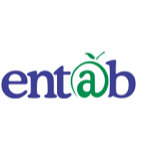

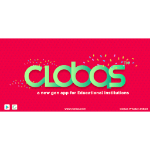

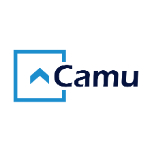

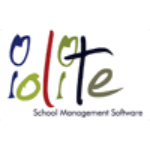

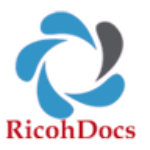
.png)



.png)
